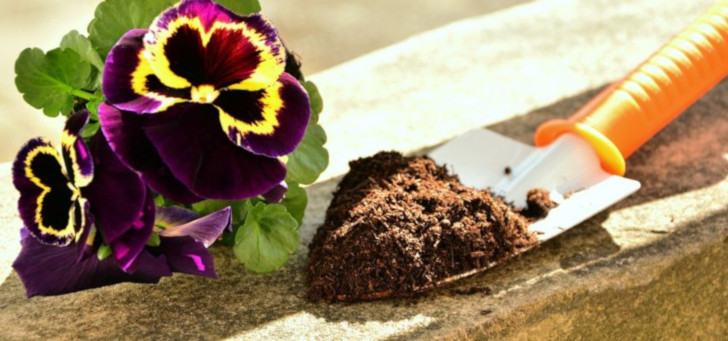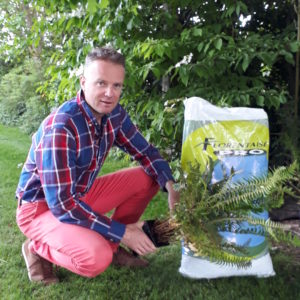Ecological compost for new green space maintenance methods
Peat used to be a “must” in compost but it is a limited and non-renewable resource on a human scale. The good news is that compost also meets sustainable development logic! Paysalia met with Emmanuel Ranger, a technical sales representative at Florentaise, a company the imagination of which is as fertile as the new generation composts it invents and showed at Paysalia 2017.

Peat used to be a “must” in compost but it is a limited and non-renewable resource on a human scale. The good news is that compost also meets sustainable development logic! Paysalia met with Emmanuel Ranger, a technical sales representative at Florentaise, a company the imagination of which is as fertile as the new generation composts it invents and showed at Paysalia 2017.

Paysalia: You created ecological composts which you unveiled at Paysalia 2017. Why did you decide to work in this field?
Emmanuel Ranger: For a long time horticulturalists have used substrates containing peat from the Baltic States and Ireland. However, there are now three major problems.
- Peat is not renewable! It takes several thousand years - 3,000 years for fair peat and 8,000 years for black peat - to create it as peat is primarily decomposed sphagnum moss. As a compost supplier we set out to invent ecologically responsible solutions and develop substrates from raw materials renewable in a human time-frame.
- Peat bogs are unique ecosystems which are major contributors to water and air cleaning, the storage of CO² and which control local climatic conditions through evapotranspiration. Approximately 50% of the world’s biodiversity lives in these wetlands which only account for 3% of landmass.
- The exploitation and transport of peat generate a lot of CO², which increases global warming.

Emmanuel Ranger, technical sales representative at Florentaise[/caption] We cannot go on maintaining green spaces with this raw material and it is very likely that limitations and even prohibitions of peat exploitation will be introduced in the years to come. So for the last 20 years, to free us from the peat, we have been working to develop durable solution composts for gardens made from recycled, local, renewable raw materials on an industrial scale.
Water management has become a real challenge for landscape professionals. Does the use of ecological compost increase green space water requirements?
Public authorities have flower requirements which require compost with both growth-stimulating and water-retention properties to limit watering during green space maintenance. Our solution was to develop a peat-free substrate range containing maritime pine bark fiber with the same porosity and water-retention characteristics as peat composts. For growth-promoting composts for flowers we add Fertisorb, a water-retainer which increases the usable water reserve of our substrates. It stores water when it is abundant and restores it when there is less. This technology makes it possible to reduce watering frequency even in a heat wave, for example, without serious negative impacts on green spaces.
Also see: Eco-town planning, which challenges for rain water harvesting?
What is slowing the adoption of ecological compost by professionals?
It must be used more widely. Public authorities like Paris are starting to be interested in it for green space maintenance but using ecological compost is not yet a habit. What is needed is to make people and professionals more aware of the problems related to traditional compost. The challenges are also not same in all markets. We have opened factories in China and India because Asian markets are very interested in the ecological impact of these materials and very receptive to new compost solutions as they do not have any peat bogs and so have had to import composts at inevitably higher costs. Producing in other countries is also an opportunity for us to identify local materials which we can recycle. And last but not least there is an economic problem. Ecological compost will never be popular with landscape professionals if it costs more than traditional compost. Fortunately, with our new range we could prove that it is completely possible to market ecological compost in the same price ranges!
You won a Paysalia Innovations Trophy for your Ecolabel professional compost range. What did that do for you?
We got a very warm welcome from landscape architects, public authorities and even our competitors! Many did not know that our alternative existed for green space maintenance. Since 2017 we have carried out several tests with public authorities and producers. Winning this trophy improved brand visibility and our corporate image. It recognized our innovative approach and proved we were not lagging behind our European competitors. We were very happy to win the Trophy!
Paysalia Innovation Trophies 2017: the 6 award winners!
Our thanks to Emmanuel Ranger from Florentaise for his time and expertise.
Discover Florentaise's interview from Paysalia 2017!
Crédit photo : Pixabay / Congerdesign

